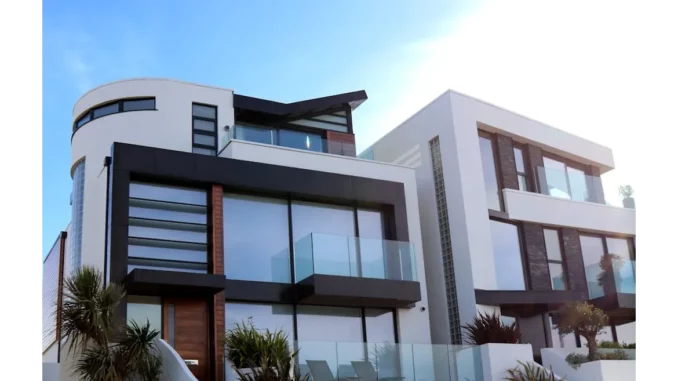
In the picturesque town of Bury St Edmunds, a significant dialogue is unfolding amidst the historic streets and burgeoning neighbourhoods. At the centre of this conversation is the future of energy production and the pivotal role that solar panels could play in new housing developments. A leading voice in this discourse is Mr. James Larson, a local hairdresser with a fervent commitment to sustainable energy solutions. His insights, recently shared on BBC Politics East’s “Your Shout” segment, have struck a chord with many, catalysing a discussion that reverberates beyond this charming English town.
Discover how Focus360 Energy aids sustainable development with Sustainability Statements.
Mr. Larson’s advocacy for solar energy is deeply intertwined with his personal experiences and aspirations for a sustainable future. As we chatted in the welcoming ambience of his salon, he reflected on the rapid changes occurring in the Mount Road area. “They’re building at the moment like there is no tomorrow,” he remarked, gesturing towards the direction of the new developments. Larson’s tone was an amalgam of reflection and fervour, underscoring his commitment to sustainable practices.
At the crux of Mr. Larson’s argument is a straightforward yet impactful idea: the future of energy should not rely on expansive solar farms claiming valuable farmland, but rather on embedding solar panels within the very structure of new homes. “I would like to see all the properties here filled with solar panels because it is the future,” he elucidated. His vision transcends sustainability; it embodies practicality and foresight. According to Larson, the responsibility lies with urban planners to enforce this shift. “The planners have got to be forceful and say if you build these properties you have to include solar panels,” he urged.
Mr. Larson expressed bewilderment at the trend of converting fertile agricultural land, especially in regions like Newmarket, into solar farms. “We are using good farmland for something that is not necessary,” he lamented, resonating with the sentiments of numerous demonstrators opposing the large-scale conversion of farmland for solar energy. To Larson, this represents a misallocation of resources. “It’s basically madness,” he declared with emphasis.
Drawing from his Danish heritage, Mr. Larson offered an illuminating perspective on how other nations successfully balance energy needs with environmental preservation. “Denmark has a small population but we do have a lot of windmills and a lot of solar power,” he shared, recounting how his hometown transitioned from coal-powered energy to renewables without sacrificing precious farmland. “No solar panels on farmland there, because the farmland is too valuable to be used,” he pointed out. This comparison serves as a compelling reminder that sustainable energy solutions need not compromise valuable resources.
In our discussion, Mr. Larson articulated the broader implications of these energy choices for future generations. He expressed optimism that urban planners would adopt a more holistic approach, one that prioritises the long-term health of the environment and society over immediate conveniences. “If we look at the bigger picture, integrating solar panels into new homes is not just about saving energy, it’s about preserving our land and our way of life,” he stated with quiet determination.
As I departed the salon, the profound implications of our conversation lingered. Mr. Larson’s advocacy extends beyond local concerns; it addresses a global challenge requiring thoughtful deliberation and decisive action. His impassioned plea to incorporate solar panels in new housing developments is not merely a call to action; it is an invitation to envision a harmonious future where sustainability and progress coexist.
The dialogue surrounding energy solutions is intricate and multifaceted, yet voices like Mr. Larson’s offer clarity and direction. As communities continue to expand, incorporating renewable energy into the fabric of everyday life is not just an option—it is imperative. By adopting solar panels in new homes, we can pave the way towards a more enlightened and sustainable future, ensuring that the choices we make today will positively shape the world of tomorrow.


Be the first to comment